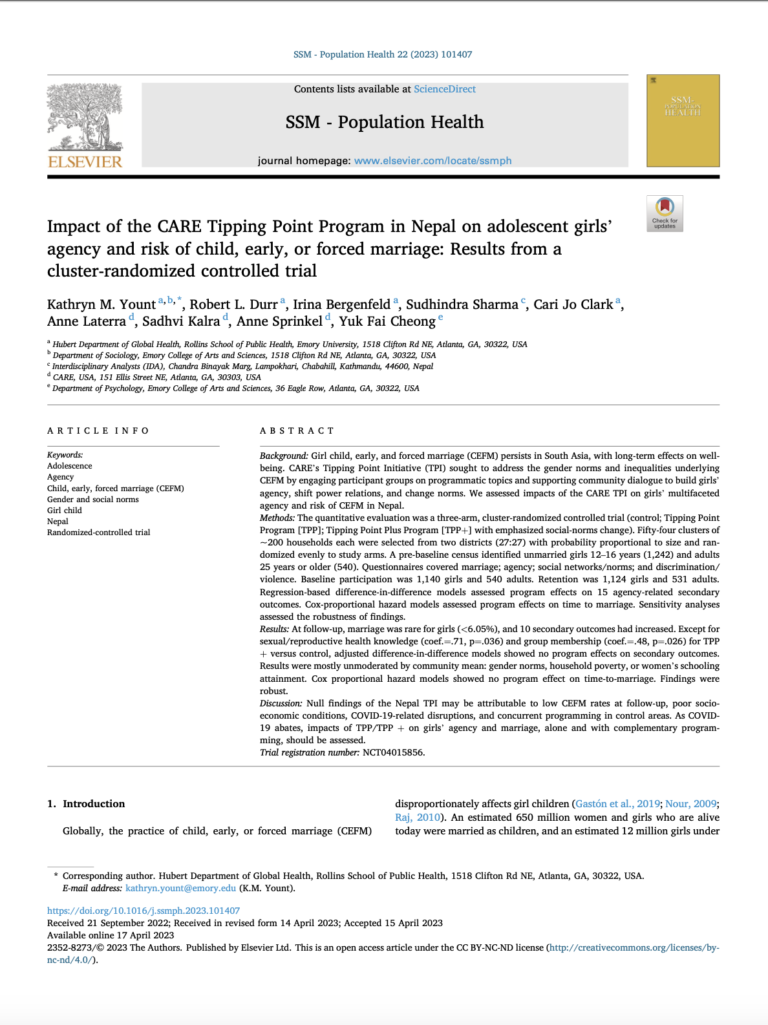ackground: Girl child, early, and forced marriage (CEFM) persists in South Asia, with long-term effects on well- being. CARE’s Tipping Point Initiative (TPI) sought to address the gender norms and inequalities underlying CEFM by engaging participant groups on programmatic topics and supporting community dialogue to build girls’ agency, shift power relations, and change norms. We assessed impacts of the CARE TPI on girls’ multifaceted agency and risk of CEFM in Nepal.
Methods: The quantitative evaluation was a three-arm, cluster-randomized controlled trial (control; Tipping Point Program [TPP]; Tipping Point Plus Program [TPP+] with emphasized social-norms change). Fifty-four clusters of ~200 households each were selected from two districts (27:27) with probability proportional to size and ran- domized evenly to study arms. A pre-baseline census identified unmarried girls 12–16 years (1,242) and adults 25 years or older (540). Questionnaires covered marriage; agency; social networks/norms; and discrimination/ violence. Baseline participation was 1,140 girls and 540 adults. Retention was 1,124 girls and 531 adults. Regression-based difference-in-difference models assessed program effects on 15 agency-related secondary outcomes. Cox-proportional hazard models assessed program effects on time to marriage. Sensitivity analyses assessed the robustness of findings.
Results: At follow-up, marriage was rare for girls (<6.05%), and 10 secondary outcomes had increased. Except for sexual/reproductive health knowledge (coef.=.71, p=.036) and group membership (coef.=.48, p=.026) for TPP + versus control, adjusted difference-in-difference models showed no program effects on secondary outcomes. Results were mostly unmoderated by community mean: gender norms, household poverty, or women’s schooling attainment. Cox proportional hazard models showed no program effect on time-to-marriage. Findings were robust.
Discussion: Null findings of the Nepal TPI may be attributable to low CEFM rates at follow-up, poor socio- economic conditions, COVID-19-related disruptions, and concurrent programming in control areas. As COVID- 19 abates, impacts of TPP/TPP + on girls’ agency and marriage, alone and with complementary program- ming, should be assessed.

